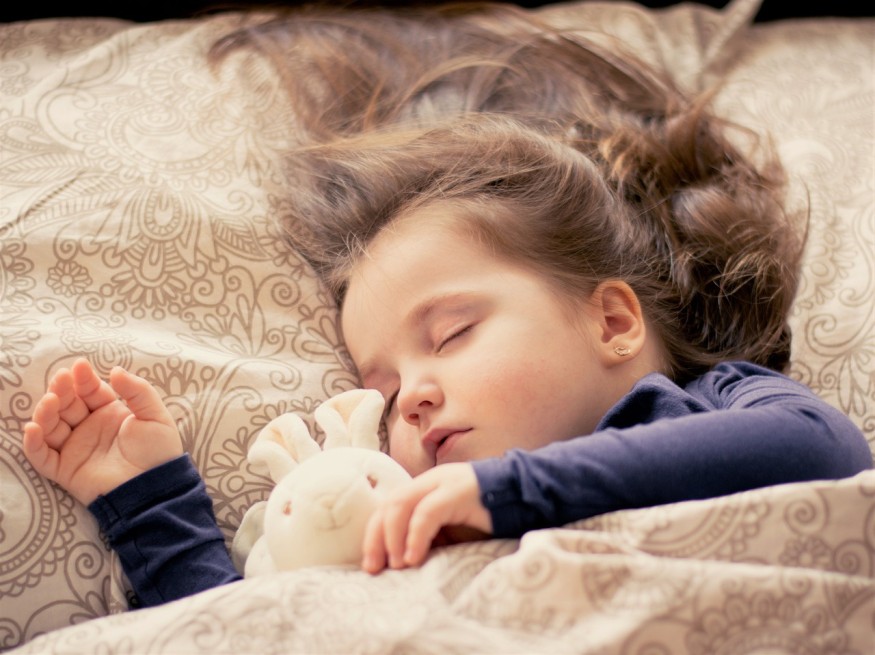A study led by the Stanford University School of Medicine recently showed that mindfulness would teach students to relax and deal with stress by concentrating on the current moment. This, in turn, will help children achieve proper sleep.
According to The Health Site report, sleep problems can have adverse effects on the behavior and performance of children.
Essentially, the condition may also lead to behavioral problems, accidents and injuries, learning problems, impulsive behavior, overeating, mood problems, and problems in performance, among others.
After doing the mindfulness curriculum in their primary schools, at-risk children got more than one hour of sleep every night, a recently published study said.

How 'Mindfulness' Affect Sleep of Children
The study authors in the said research investigated how school-based mindfulness exercise affects children's sleep through the use of polysomnography methods, which monitor the activity of the brain.
This program taught students how to relax and deal with stress by focusing their attention on the present moment, although it did not teach them how to sleep more soundly.
The findings suggest that students who took part in the program slept an additional 74 minutes every night than they did prior to the intervention.
Essentially, rapid eye movement or REM sleep, which the National Sleep Foundation describes as comprising dreaming and aids in memory consolidation, was prolonged too, in youngsters who learned the tactics.
According to Ruth O'Hara, senior author of the study, a sleep expert, and psychiatry and behavioral sciences professor at Stanford University, they obtained a half-hour REM sleep.
Evidence has suggested that REM is a critical stage of sleep for neuronal growth and the development of cognitive and emotional functions.
Conduct of the Study
For this study, a similar CNN report said, the researchers signed up 58 children from the curriculum cohort and 57 children from the control group for three in-home sleep assessments, one prior to the onset of the program, one year after, and two years later.
The kids who were part of the study resided in two low-income, mainly Hispanic areas in the San Francisco Bay Area.
The intervention was provided to one neighborhood, while the control was given to the other cohort. Both featured high crime and violence rates, and families were stressed by factors like food shortage, not to mention crowded, unstable housing.
Since study's children were having a difficult time letting their experiences go and considering that to fall asleep, one has to relax; the research team included a program that focused an individual's attention on the present moment—the mindfulness exercises including slow, deep breathing, and yoga-based movement.
For two years, classroom teachers and yoga instructors taught the curriculum two times a week in all grade- and middle-schools in the neighborhood that were given the intervention.
Instructors taught the kids about stress and urged them to utilize tactics to help them rest and relax, although they did not teach them about self-improvement practices like keeping constant bedtimes.
'Mindfulness' Resulting in Better Sleep in Children
At the onset of this trial, the study investigators found that students in the control group had 54 minutes more sleep on average and had a 15-minute extension of REM sleep every night compared to kids in the training group.
As a result, children from the control group slept roughly 7.5 hours each night, while those in the curriculum group had approximately 6.6 hours of sleep.
The researchers hypothesized that kids might encounter improvements in sleep via a decrease in stress. Nonetheless, the children who got the most sleep during the study also reported rising stress, probably because the curriculum helped them understand what stress was.
Nonetheless, they achieved better sleep. The study authors expressed hope to further understand how some aspects of the curriculum, such as activities that encourage "deep, calm breathing," may modify bodily functioning to allow kids experience better sleep.
Related information about mindfulness is shown on the Beck Institute of Cognitive Behavior Therapy' Video below:
Check out more news and information on Sleep Study on Science Times.
© 2026 ScienceTimes.com All rights reserved. Do not reproduce without permission. The window to the world of Science Times.












